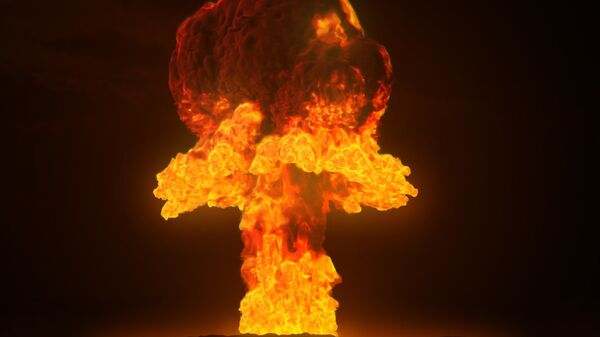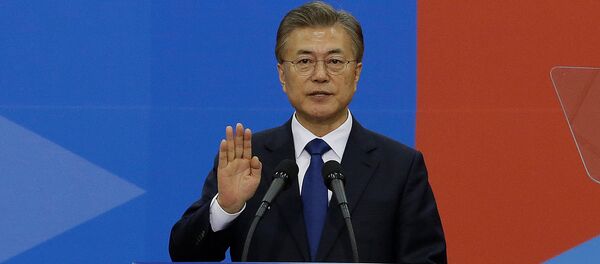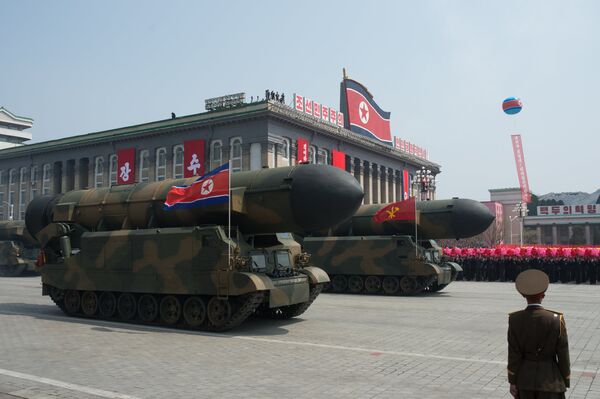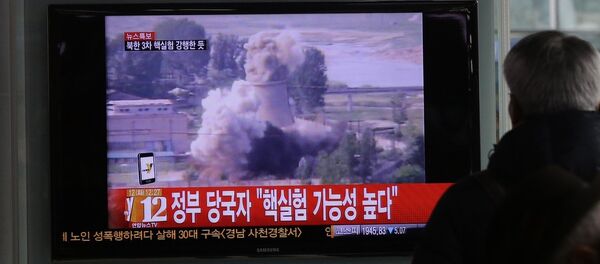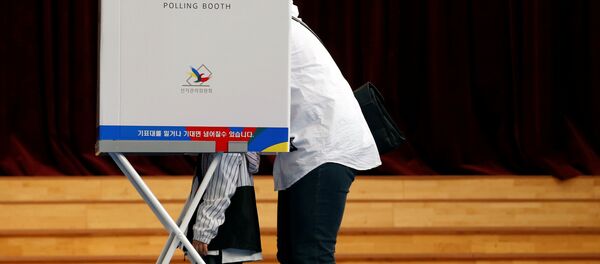The Japanese government has introduced the J-Alert and Em-Net national emergency warning systems aimed at informing the country's citizens of a potential missile launch by Pyongyang.
Furthermore, as Reuters noted on April 24, "sales of nuclear shelters and radiation-blocking air purifiers have surged in Japan in recent weeks as North Korea has pressed ahead with missile tests in defiance of UN sanctions."
Sputnik Japan's contributor Tatyana Khlon recalls that this is exactly what happened in America during the Cold War with the USSR.
"According to historians, the world had never been so close to a global nuclear war as during the Cuban Missile Crisis. Since then, almost 55 years have passed, and the world is again watching with alarm the seriously deteriorating situation this time on the Korean Peninsula," Khlon noted, noting that one of the ballistic missiles launched by the Democratic People's Republic of Korea on March 6 fell just 200 kilometers (124 miles) from Japan's Noto peninsula.
Speaking to Sputnik Japan, Vladimir Evseev, a Russian military expert and senior analyst at the Institute of CIS Countries, pointed out that it was Washington who has once again provoked Pyongyang.
"The DPRK responded by showing various types of weapons at the parade, prompting concerns among the Japanese. In particular, the submarine-launched ballistic missile Polar Star-1 was demonstrated as well as different versions of the Musudan [intermediate-range ballistic] missile. But they are not as critical for Japan as the naval version of the Polar Star," Evseev said.
"Yes, the North Korean missiles have not yet been sufficiently well developed," the military expert continued, "But the very fact of their presence is obvious… Of course, this causes Japan to reasonably worry about its own security and, perhaps, even thinking about creating its own nuclear weapons."
Given this, any provocations toward North Korea would spell danger to the region, according to the expert.
"It's clear that North Korea will not stop its program, so the time has come to hold talks over the potential limitation of the DPRK's nuclear missile capabilities," Evseev believes, "It seems to me that only this approach may reduce the tension."
"It would be suicide for [North Korea]," he remarked.
"No one wants war, but there is a feeling that everyone is preparing for it," Kistanov told Sputnik, "Today, the watershed line in the region is passing between the US and China. The Americans wouldn't mind toppling the government of Kim Jong-un and replacing it with a pro-American regime. The goal: to take over the entire Korean Peninsula and without obstacles to deploying American strategic weapons freely not only in the south of the Korean peninsula but also in the north, close to China's border. Then they would be able to use the Korean Peninsula to exert pressure on China."
However, according to Georgy Toloraya, the head of Korean studies at the Institute of Economics of the Russian Academy of Sciences, nobody is intended to kick off a nuclear war because of North Korea's controversial missile program.
"This is not Iraq, not Libya, and not even Syria. [North Korea's potential] retaliation may do too much damage and that discourages Americans from doing this. For its part, South Korea does not want to fight against the DPRK, as it does not want to fall prey to the confrontation between the US and China," Toloraya said in an interview with Sputnik.
On the other hand, Moon Jae-in's rise to power in South Korea offers new opportunities for the region.
In a recent phone conversation with Chinese leader Xi Jinping, Moon signaled that Seoul wants to pursue the goal to denuclearize the Korean peninsula together with China, including resuming the six-party talks as soon as possible.
"So, isn't it easier to just resume the six-party talks, instead of driving North Korea into a corner?" Tatyana Khlon asks rhetorically, adding that "there is always a choice."

